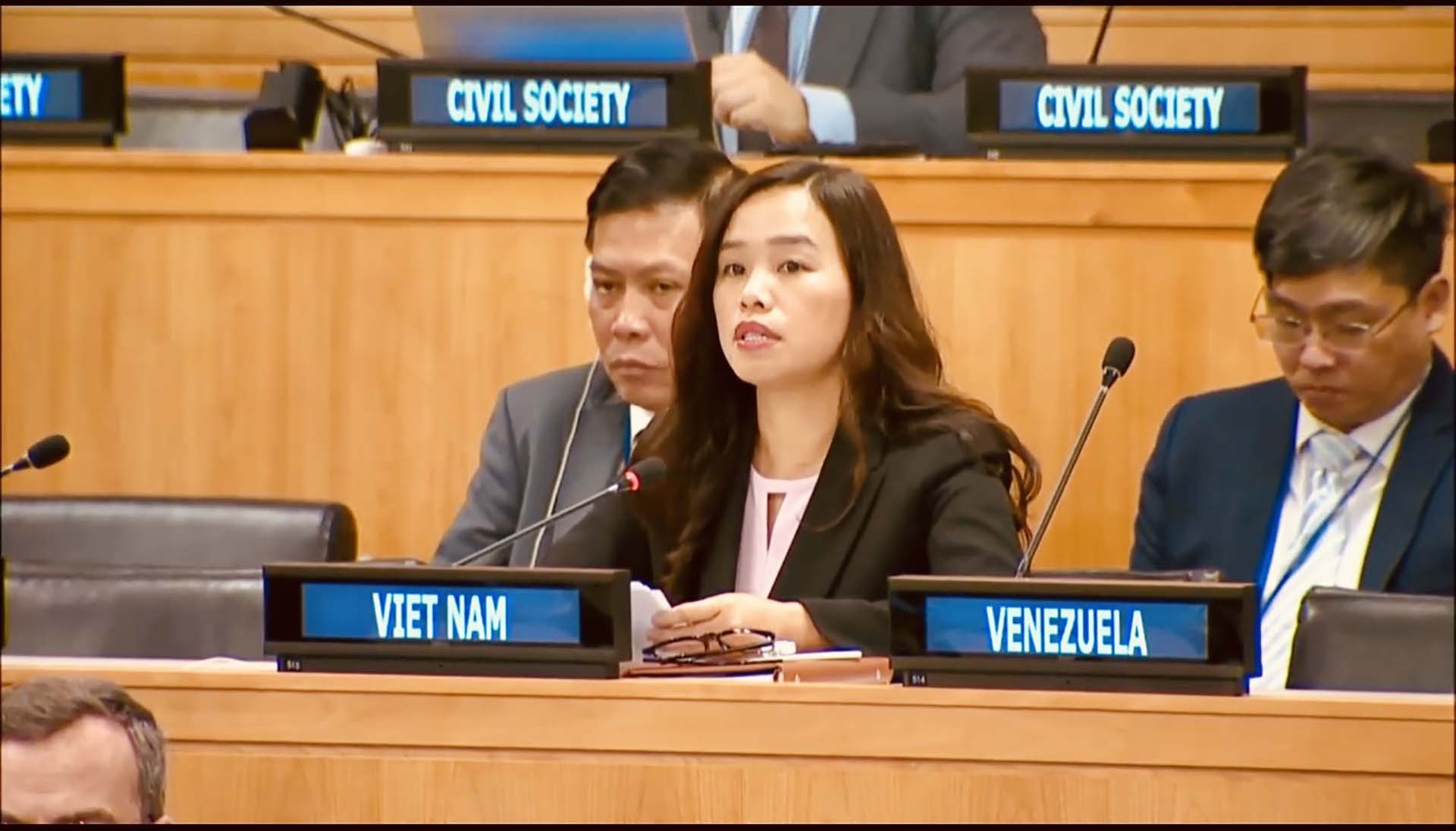
Framework for conventional ammunition management must respect international law, UN charter
Latest
 |
| Tham tán công sứ Lê Thị Minh Thoa, Phó Trưởng Phái đoàn đại diện thường trực Việt Nam tại Liên hợp quốc tham dự phiên họp. |
At the ongoing fourth substantive session of the UN open-ended working group on conventional ammunition in New York, Minister Counselor Le Thi Minh Thoa, Deputy Permanent Representative of Vietnam to the United Nations, also shared the international community’s common concern over the risks and challenges brought about by the illicit trade, transfer, misuse and mismanagement of ammunition.
She said any framework for conventional ammunition management must be consistent with fundamental principles of the international law and United Nations (UN) Charter, and ensure the legitimate rights and interests of countries in the production, possession, purchase and transfer of weapons and ammunition for defence-security purposes.
The framework should be voluntary and non-binding, take into account the level of development and national law, and place no additional burdens on developing countries, she added.
It needs to capitalise on existing mechanisms related to ammunition including the UN’s Programme of Action on small arms and light weapons and Convention against Transnational Organized Crime, as well as nations’ efforts in the matter, Thoa elaborated.
She held that in this process, support for and cooperation with developing countries in capacity building, technology transfer and resource assistance are crucial in ensuring the safe ammunition management.
The fourth substantive session is taking place at the UN Headquarters in New York from June 5-9 in a bid to further develop and adopt political commitments to address emerging issues in ammunition management and ensure security, safety, and sustainable ammunition management at the national, regional and global levels.
Representatives of many countries argued that the ineffective management of conventional ammunition has threatened global peace, security and sustainable development, with many countries suffering from unintended ammunition explosions.
Given the context, they all underscored the need for a global framework serving the safe and effective ammunition management.
The open-ended working group was established on 24 December 2021 pursuant to UN General Assembly resolution 76/23 to elaborate a set of political commitments as a new global framework that will address existing gaps in through-life ammunition management.












